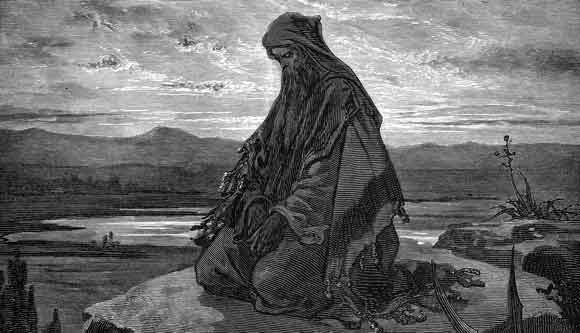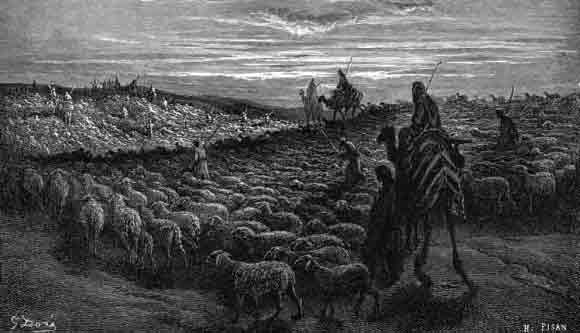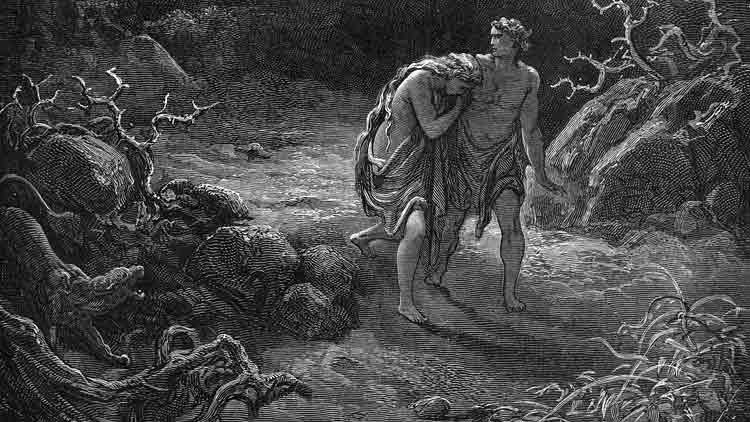I have enjoyed preaching this series of sermons on the Heroes of Faith, primarily because of the dialogue with many of you. Some of you are troubled by certain things in the lives of these heroes of faith.
Some of your were troubled that Abraham, Isaac, and Jacob all had more than one wife. Deuteronomy 17 said that a king should have few wives, but David had seven wives. Solomon exceeded his father 100 fold. According to 1st Kings 11: 3 Solomon was said to have over 700 wives and 300 concubines. This did not please the Lord, for these wives turned Solomon’s heart to foreign gods, yet God still permitted Solomon to build the first temple in Jerusalem. Over the years, many people have questioned me about the polygamy in the Old Testament. In my studies, I have been forced to conclude that the Bible does not have a single sexual ethic. Some have suggested this ambiguity extends even into the time of the New Testament. For instance, we read in 1st Timothy 3 that anyone who serves as a bishop (elder) or a deacon should be “ the husband of one wife.” Some commentators suggest this means that officers of the church must be a married man. Others suggest that they must not be divorced and remarried. Still others suggest that officers of the church must not practice polygamy. I would remind you that even today at least a small percentage of Mormons accept polygamy, and they can manage at least some scriptural support, especially among the patriarchs, David, and Solomon. This question is especially complicated if you read the Bible as equally inspired from Genesis to Revelation, each verse having the same measure of importance as every other. I long ago decided that Martin Luther’s understanding of scripture was better than Joseph Smith’s. Luther maintained that the Scripture is inspired in direct proportion that it preaches Jesus Christ. This means that Revelation is progressive, and Jesus is God’s last and best word, and that any future word must be in harmony with Him. Given what Jesus said in Mark 10 about a man leaving his mother and father and becoming, “one flesh” with his wife, it is difficult to imagine Jesus accepting polygamy.
Likewise, some of you are troubled by the harsher sayings of Moses. Many of you were shocked that Moses commanded that consistently disobedient children should be put before the elders of the city, and then stoned to death alongside adulterers, and homosexuals. Others would be shocked to learn that Moses barred men with crushed testicles from entering the assembly of the Lord. (Deuteronomy 23:1). Today that would include many men who have served this nation in combat. So, too, Moses forbad any born out of wedlock from entering the assembly of the Lord, or his descendants, even to the 10th generation. (Deuteronomy 23:2) That is like saying that one of us could not come to church because we were born to a single-mother. I myself have always regarded these texts, and others like them, as not only pre-Christ, but also sub-Christ. They do not measure up to Him! I cannot imagine Jesus Christ advocating that we stone people to death—he did not offer cheap grace, but he did offer real forgiveness, and he left judgment in the hands of God. Nor can I imagine Jesus refusing to allow someone to join the church because of a mistake that his mother made, much less because of a mistake made by his great-grandparents, nine-times removed.
King David also comes in for his share of criticism. He may have ended his life, “a man after God’s own heart,” (Acts 13:22) but David did some things that cause us to blush, and other things that cause us to hang our heads in shame, especially the way he dealt with Uriah, the husband of Bathsheba whom he murdered to protect himself. (2nd Samuel 11:14-17) Indeed, David is every bit as flawed as our modern heroes. Dwight Eisenhower was a great president, my absolute favorite, because he was the first I really knew, but he let his wife Mamie down when had an affair with his driver, Kay Somersby. Arnold Schwarzenegger was one of California’s most popular governors, but he let his wife Maria down when he fathered a child by his housekeeper of twenty years. I could go on to name other prominent people who slipped—people like Bill Clinton, and several of the Kennedy’s and dozens of other politicians. In fairness I have to say that preachers have had our share of negative headlines. Jim Bakker was caught up in a sex scandal with Jessica Hahn. So, too, he defrauded a lot of people out of a lot of money. When the authorities went in to arrest him for fraud, they found him lying behind a couch in a fetal position. Perhaps, his position was a profession. Perhaps he wished he had never been born. It puts me in mind of the question of Nicodemus who came to Jesus by night: “Can a man enter a second time into his mother’s womb and be reborn when he is old?” No! But Jesus said a man can be “born from above,” or “born again” by the Spirit of God. I am happy to report that Bakker has made a confession and a comeback, and this time, he is far less concerned with fame and notoriety. I don’t agree with all that he is doing—but I am impressed that he is doing it!
What am I saying—only that the heroes of the Bible are flawed, like all our heroes are flawed, and like you and I, are flawed. The heroes of the Bible are fully heroes only when they, like the Scripture itself, reflect, and proclaim Jesus Christ.
And that brings us to Isaiah, the priest who was also a prophet. In Isaiah, at last, we have found a hero in whom there is no guile. Like just a few others before him, he is keenly aware of God’s holiness, and like almost no one before him, he is even more keenly aware of God’s grace. (Footnote: 1)
In Isaiah 6 we read about the true foundation of his faith—-it is nothing more, and nothing less, than a dramatic encounter with God.
In Isaiah 6 we read Isaiah’s personal testimony. He tells us about a powerful vision. He writes:
1 In the year that king Uzziah died I saw also the Lord sitting upon a throne, high and lifted up, and his train filled the temple. 2 Above it stood the seraphim: each one had six wings; with two he covered his face, and with two he covered his feet, and with two he flew. 3 And one cried unto another, and said, Holy, holy, holy, is the LORD of hosts: the whole earth is full of his glory. 4 And the foundation of the threshold shook at the voice of him that called, and the house was filled with smoke. 5 Then said I, Woe is me! for I am lost and undone; because I am a man of unclean lips, and I dwell in the midst of a people of unclean lips: for mine eyes have seen the King, the LORD of hosts. 6 Then flew one of the seraphim unto me, having a live coal in his hand, which he had taken with the tongs from off the altar: 7 And he laid it upon my mouth, and said, Lo, this has touched your lips; and your iniquity is taken away, and your sin purged. 8 (Then) I heard the voice of the Lord, saying, “Whom shall I send, and who will go for us?” Then said I, “Here am I; send me.”
I love that phrase, “Here am I; send me.” Oswald Chambers said that God is more interested in our availability than our ability. God can give the available all the ability they need. Isaiah was a hero primarily because he was available! Let us put Isaiah’s lasting value into context.
- The name of Moses appears 80 times in the New Testament, almost always as the Lawgiver. It is impossible to calculate the number of times the New Testament makes reference to something that Moses taught. Yet the New Testament makes a sharp contrast between the time of the Moses, and the time of Christ. In Galatians 3:24 St. Paul says that the Law of Moses was a schoolmaster to lead us to Christ, that we might be justified through faith in him. (KJV)
- The name of King David appears 59 times in the New Testament. Jesus is often called “the son of David,” and he is to “sit upon the throne of David.” The plot thickens in the book of Revelation, which declares that Jesus is both “the root (the ancestor) and the offspring (the the progeny or descendant) of David.” (Revelation 22:16) The former in the time before the Incarnation of the Eternal Word in the Man Jesus, and the latter after the Incarnation.
- The name of Elijah is mentioned 29 times. All three synoptic gospels agree that Elijah appeared alongside Moses at the transfiguration of Jesus. Elijah stands for the Prophets as a whole as Moses stands for the Law as a whole. The Jews referred to the Hebrew Bible as “the Law and the Prophets,” as did Jesus. On the Mount of Transfiguration, Jesus reveals a new, higher authority, greater than Moses and Elijah. Thus the voice of God declares, “This is my son, the beloved, listen to him!”
- Elijah is an important figure in the New Testament, yet, in many ways, he is overshadowed by Isaiah. Elijah is the hero of many stories, but the author of none—though he may have sent a letter to Jehoram a king of Judah. (2nd Chronicles 21) By contrast we know little about who Isaiah was, but we know a great deal of what he said. His greatest claim to fame is the book, which bears his name. Some say that one man is responsible for the whole book, but the prophecies span more than a single generation. Therefore some attribute various divisions to multiple people, all writing in the Spirit and tradition of the man we know as Isaiah. (Footnote: 2) The New Testament mentions the name of Isaiah only 22 times—fewer than it mentions Elijah, but it refers to texts from the book of Isaiah more than 60 times!
Let me give you a handful of examples.
1. In Isaiah 7:14 we read, “Therefore the Lord himself shall give you a sign; Behold, a virgin shall conceive, and bear a son, and shall call his name Immanuel.”
In the context of Isaiah chapter 7, it is likely that Isaiah was referring to a situation in his own life; the child to be born was to be his child. However, it is hard for us to read the narratives telling about the birth of Jesus that are found in St. Luke or in St. Matthew without thinking that Jesus himself reveals the deeper, and true meaning of Isaiah’s prophecy.
2. In Isaiah 40:3-5 we read:
A voice cries: “In the wilderness prepare the way of the LORD, make straight in the desert a highway for our God. 4 Every valley shall be lifted up, and every mountain and hill be made low; the uneven ground shall become level, and the rough places a plain. 5 And the glory of the LORD shall be revealed, and all flesh shall see it together, for the mouth of the LORD has spoken.”
Matthew, Mark, Luke and John all call attention to this text. And all four declare that John the Baptist was that voice crying in the wilderness who came to smooth the way for the coming of God Messiah, Jesus of Nazareth.
3. In Isaiah 9:2 we read, “The people who walked in darkness have seen a great light; those who dwelt in a land of deep darkness, on them has light shined.” Isaiah says that the light comes out of Galilee.
Matthew alone quotes this text directly, but the contrast between “light” and “dark” fills the pages of the New Testament. The word light occurs more than 120 times. The word dark and its derivatives occur more than 70 times.
In John 1 we read that Jesus was the true light who was coming into the world. In verse 5 we read:
The light shines in the darkness, and the darkness has not overcome it.
In John 8:12 Jesus himself says:
“I am the light of the world; he who follows me will not walk in darkness, but will have the light of life.”
4. In Luke chapter 4: 16-21 Jesus applies yet another prophecy of Isaiah to himself. (Isaiah 61:1-3)
The text declares that when Jesus came to Nazareth, where he had been brought up; he went to the synagogue, as his custom was, on the Sabbath day. And he stood up to read; and there was given to him the book of the prophet Isaiah. He opened the book and found the place where it was written:
18 “The Spirit of the Lord is upon me, because he has anointed me to preach good news to the poor. He has sent me to proclaim release to the captives and recovering of sight to the blind, to set at liberty those who are oppressed, 19 to proclaim the acceptable year of the Lord.”
And when Jesus had finished reading, he closed the book, and gave it back to the attendant, and sat down; and the eyes of all in the synagogue were fixed on him. And he began to say to them, “Today this scripture has been fulfilled in your hearing.”
5. There are many, many more texts of Isaiah that are incorporated into the matrix of our New Testament. There is one other text that I absolutely must mention. I refer, of course, to Isaiah 53, which is printed in your bulletin.
Though not many Jews considered the text as “messianic,” (Footnote: 3) and most thought it applied to the whole nation of Israel, I am quite sure that this text about “the suffering servant,” informed the thinking of Jesus alongside Daniel 7, which is about “the Son of Man who receives the kingdom from the Ancient of Days.” Jesus blends both together when he says, “The Son of man came not to be served, but to serve, and to give his life as a ransom for many.” (Mark 10:45) Certainly, the early church saw this text as descriptive of what Jesus Christ accomplished in his person and ministry. A primary example is found in Acts 8. There we read about the conversion of the Ethiopian Eunuch, a minister of the Candace or Queen of Ethiopia.
The text indicates that the Ethiopian was a God fearing Gentile who had gone up to Jerusalem seeking further insight about the God of Israel. Unfortunately, as a eunuch he was barred from “the assembly of Israel,” (Footnote: 4) and he missed the 11:00 o’clock service of the 1st Church of Jerusalem. Yet, God had a plan for this man. Philip the Evangelist was over in Samaria, where he was the primary agent in the spread of the gospel in that place. It was a big job, and he was doing it well. Nevertheless, an angel of the Lord said to Philip, “Rise and go toward the south to the road that goes down from Jerusalem to Gaza; it is a desert road.” Philip obeyed God went down to the desert road. He saw the Eunuch seated in his chariot, and prompted by the Holy Spirit, Philip ran to him, to join him. As he drew near he heard the man reading from Isaiah the prophet.
“As a sheep led to the slaughter or a lamb before its shearer is dumb, so he opens not his mouth. 33 In his humiliation justice was denied him. Who can describe his generation? For his life is taken up from the earth.”
Philip asked, “Do you understand what you are reading?” And the Eunuch responded said, “How can I, unless some one guides me?” He wanted to know if the prophet was writing about himself or another, and he invited Philip to join him in his chariot. The text declares that Philip accepted his invitation, and then he opened his mouth, and beginning with this scripture—the heart of Isaiah 53, Philip told the Ethiopian Eunuch about the good news of Jesus. The text declares that he professed his faith in Christ, and immediately asked for baptism. Tradition says that this Ethiopian was the first convert from Africa, and carried the gospel back to that continent where he was at the heart of a great evangelistic movement, and ultimately became a Bishop of the church.
This text is particularly dear to Moravians. When Zinzendorf sent out the first missionaries, he told them to look for “Candaced Souls” saying, “I want you to speak to those to whom God has already spoken.”
I think it is interesting that this text is associated with evangelism in our church, because it begins with a text from Isaiah, and Isaiah is the most evangelical and evangelistic prophet of the Hebrew Bible. His prophecies certainly remain foundational to the New Testament experience of Jesus Christ.
Several times over the last year I have immersed myself in a book of the Bible. Last fall it was the Revelation. I read it more than 20 times, learning a little more after each reading. Thus far in July I have read Mark 15 times, and want to read it several times more by the end of the month. In the not too distant future, I hope to submerge myself in Isaiah. I am willing to bet that when I have read it through over and over, I will still regard Isaiah as a work by one (or more) of the real heroes of faith.
Finis
Worth Green, Th.M., D. Min.
Footnotes:
1. Admittedly, Isaiah’s appeal may be that we know him primarily from his prophecy, and have very little real biographical information about him. It may be that he is more flawed than we are aware. Nobody’s perfect, except, of course, the One.
2. Scholars generally divide the book of Isaiah into three sections: 1) Chapters 1 to 39 deal with the time before the Babylonian Exile, 2) Chapters 40-55 deal with the time of the Exile itself, and 3) Chapters 56-66 deal with the time immediately after the exile. For example, one of my absolute favorite texts is found in Isaiah 65. It dates from after the Babylonian captivity of Israel, and it speaks to the future that is coming to the people of Israel. God speaks through his prophet to his people saying:
20 No more shall there be in it an infant that lives but a few days, or an old man who does not fill out his days, for the child shall die a hundred years old, and the sinner a hundred years old shall be accursed. 21 They shall build houses and inhabit them; they shall plant vineyards and eat their fruit. 22 They shall not build and another inhabit; they shall not plant and another eat; for like the days of a tree shall the days of my people be, and my chosen shall long enjoy the work of their hands. 23 They shall not labor in vain, or bear children for calamity; for they shall be the offspring of the blessed of the LORD, and their children with them. 24 Before they call I will answer, while they are yet speaking I will hear. 25 The wolf and the lamb shall feed together, the lion shall eat straw like the ox; and dust shall be the serpent’s food. They shall not hurt or destroy in all my holy mountain, says the LORD.”
Scholars are divided about this text. Some say they apply just to the nation of Israel. Some say that they represent an end-times vision for all God’s people. There are a number of paintings that all try to capture the meaning of these words, almost all of them entitled, “The Peaceable Kingdom.”
3. In 1st Corinthians 1:23 St. Paul says that the cross is a stumbling block to the Jews. This was so because the idea of a suffering Messiah was completely foreign to them. They expected a victorious and triumphant Messiah who would lead the nation into a new era of prosperity and influence among the nations.
4. I will bet that the Ethiopian Eunuch loved this text from Isaiah:
Isaiah 56:3 Let not the foreigner who has joined himself to the LORD say, “The LORD will surely separate me from his people”; and let not the eunuch say, “Behold, I am a dry tree.” 4 For thus says the LORD: “To the eunuchs who keep my Sabbaths, who choose the things that please me and hold fast my covenant, 5 I will give in my house and within my walls a monument and a name better than sons and daughters; I will give them an everlasting name which shall not be cut off.












